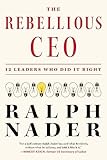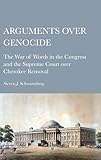If my rebuttal to globalist Robert I. Rotberg didn’t prove that Western globalization is driven by a network of Rhodes Secret Society Round Tables, then let me provide some more evidence of how the American Round Table, the Council on Foreign Relations, steers US foreign policy through the office of United States Secretary of Defense.
A Brief History of the Office in Bed with the CFR
Ashton B. Carter, who is a Rhodes Scholar and CFR member, will be the twenty-seventh United States Secretary of Defense. Twenty secretaries of defense total (almost 75% of all defense secretaries)—and eighteen of the last twenty defense secretaries (90% of the last twenty)—have been CFR members or analysts. ((Former Secretaries of Defense James V. Forrestal, Charles Wilson, and Neil McElroy were also CFR members, according to G. Edward Griffin, who is the author of the widely hailed treatise on the Federal Reserve titled The Creature from Jekyll Island. Although I was not able to confirm these claims with any primary source citations, James Perloff’s widely acclaimed Shadows of Power: The Council on Foreign Relations and the American Decline corroborates Griffin’s claim that Forrestal was a CFR member (98). If Griffin’s roster is accurate, then only four of the twenty-seven secretaries of defense (less than fifteen percent of all defense secretaries) have had no direct ties to the CFR. It is also worth noting that the former Secretary of Defense William P. Clements, Jr. Center for History, Strategy & Statecraft is overseen by a CFR member: Executive Director William Inboden.)) Of the last thirteen secretaries of defense, nine are still active CFR agents today: Ashton B. Carter, Chuck Hagel, Robert Gates, William S. Cohen, William J. Perry, Dick Cheney, William Howard Taft IV, Frank Carlucci, and Harold Brown.
From this roster alone, one might be inclined to think that CFR membership is almost a prerequisite to attaining the office of United States Secretary of Defense. Definitely, CFR control of the office has only become more ubiquitous over the years.
CFR defense secretaries have held high office at the Council as well. Former Defense Secretary James R. Schlesinger chaired a CFR Independent Task Force on Energy and US Foreign Policy while, according to CFR historian Peter Grose, former Defense Secretaries Leslie Aspin and Eliot L. Richardson were CFR Directors (Grose 70, 71). According to the Historical Office of the Office of the Secretary of Defense, Aspin was also a Rhodes Scholar, and he was appointed secretary of defense by fellow CFR–Rhodes Scholar Bill Clinton.
Moreover, the Council has advised CFR defense secretaries, including former Defense Secretaries Robert A. Lovett and George C. Marshall. Before assuming “the post of undersecretary of state in May 1947, Robert A. Lovett, who had first become a member [of the CFR] 20 years before, asked for a briefing from Council members and staff before assuming his diplomatic responsibilities” (Grose 38-39). Not long thereafter, the Marshall Plan to rebuild the economies of war-torn Europe was orchestrated by the CFR through liaisons between George C. Marshall and top CFR officials such as Hamilton Fish Armstrong as well as CFR and CIA Director Allen Dulles (Grose 38). According to Council member and CIA Director William Bundy, the CFR was responsible for “contributions to the framework of thinking that underlay the Marshall Plan and NATO” (qtd. in Grose 38). (It is worth noting that the George C. Marshall European Center for Security Studies is directed by a CFR member: Lt. Gen. Keith W. Dayton).
On the flip side of the coin, CFR defense secretaries have likewise provided analysis for the Council. Robert McNamara, Caspar Weinberger, Melvin R. Laird, and Clark M. Clifford have all been contributing analysts to the CFR’s Foreign Affairs publication. Donald Rumsfeld, who was appointed to the office of Secretary of Defense under two separate presidencies—Gerald Ford and George W. Bush—, has provided analysis for the Council through debriefings at numerous CFR forums.
In sum, nearly all US defense secretaries have been CFR members or analysts, some even high-ranking Council officials. At the same time, US defense secretaries and CFR agents have counseled one another and collaborated in efforts to shape the course of Western globalization. Given this ubiquitous exchange between the CFR and the office of United States Secretary of Defense, an Ashton Carter military should be expected to follow the CFR’s script.
Drones, Technocracy, and Globalization
Going by the CFR’s playbook, Ashton Carter will prove to be in a unique position to use his technocratic pedigree to help usher in a sort of World Trade Organization of drone corporations recommended by the CFR in two Council Special Reports.
In his 2013 Special Report entitled “Reforming US Drone Strike Policies,” Micah Zenko recommends that drone proliferation be streamlined by “creat[ing] an international association of drone manufacturers that includes broad participation with emerging drone powers that could be modeled on similar organizations like the Nuclear Suppliers Group” (27). In a more recent 2014 Council Special Report entitled “Limiting Armed Drone Proliferation,” Zenko and Sarah Kreps continue to “[e]ncourage U.S. drone manufacturers, who seek lower barriers to export, to form an association—comparable to the World Association of Nuclear Operators—to promote industry growth through transparency and risk management” (27).
In the short time since Carter has taken office as defense secretary, the Obama administration has already taken some steps in this direction toward international drone regulation. According to Military Times, “The Obama administration is amending its regulations for weapons sales to allow the export of armed military drones to friendly nations and allies” as “part of a broader U.S. strategy to cooperate with other nations to formulate global standards for the sale, transfer and use of unmanned aerial systems.” Although Zenko—who is a CFR Douglas Dillon Fellow—has been critical of these steps in a recent Foreign Policy article, he still encourages that America is “the number one arms dealer in the world, including to those countries deemed the least democratic…. Subsequently, it has a unique opportunity and responsibility to not only set precedents for the use of armed drones, but to determine which countries might acquire these systems and hold them accountable for their use.”
As the new defense secretary, Carter will be in an opportune position to set such precedents and determinations. Coming in to office on the heels of former CFR Defense Secretary Chuck Hagel’s promise to expand robotics, drones, and autonomous systems, Carter will be further poised to streamline global drone proliferation in accordance with CFR white papers.
Indeed, Carter possesses unique technocratic credentials that qualify him to pave the way for the CFR’s proposals for an international drone guild. According to the Washington Post, “Ashton B. Carter is considered one of the country’s top administrators and students of military technology. Carter, an Oxford and Yale-educated physicist, served as the undersecretary of defense for acquisition, technology and logistics from April 2009 until October 2011,” which put him in charge of “emerging national security issues, including cyber warfare and the proliferation of drones.” (It is worth noting that Carter would have been inducted into technocratic worldviews as a Rhodes Scholar; for according to one Rhodes Scholarship candidate, the scholarship interview revolved largely around questions about “nanotechnology, scientific literacy, interest rates and inflation”).
In addition to these technocratic credentials, Carter also possesses hands-on experience making technocratic administrative decisions, which makes him an ideal puppet for championing the CFR’s call for international drone regulations. An article by The Center for the Study of the Drone at Bard College states that the “Unmanned Systems Integrated Roadmap FY2011-2036” report cites Carter “as providing ‘a DoD vision for the continuing development, fielding, and employment of unmanned systems technologies.’” The Center also reports that “as Deputy Secretary of Defense, Carter issued DoD Directive 3000.09, a document that established guidelines and responsibilities for the development and use of autonomous and semi-autonomous systems in manned and unmanned vehicles. . . . [T]he directive allows the military to develop and use non-lethal autonomous systems for up to ten years and permits high-ranking Pentagon officials to overrule the ban on lethal autonomous systems.” The Center finds that Carter’s “Directive 3000.09 remains a pivotal moment in the military’s general trend towards greater autonomy in systems.” Carter has also sought to catalyze partnerships between “small tech companies” and “the Defense Advanced Research Projects Agency [DARPA], a Pentagon organization that has played a leading role in developing high-tech programs for everything from robotic hand replacements to underwater drones,” according to the Washington Post.
Judging by Carter’s technocratic credentials and track record, the CFR’s game plan for a sort of WTO of drone corporations is likely to find an advocate in Defense Secretary Carter. And the current military budget crisis will only spark further incentive for Carter to integrate more automation through drones and robotics in order to cut expenses. According to the Center for the Study of the Drone, if Carter follows the stipulations of his military memorandum entitled “Better Buying Power: Guidance for Obtaining Greater Efficiency and Productivity in Defense Spending,” then “[c]utting inefficiencies could mean adding more drones and introducing greater autonomy into military platforms and programs. . . . Simply put, a control architecture that has one operator managing several semi-autonomous or autonomous UAVs is more efficient than a two-person team for each aircraft.” In other words, it’s cheaper to pay one person to operate several drones than it is to pay two people to operate one aircraft.
The timing is certainly ripe for Carter to set the stage for an international regulatory regime governing drone proliferation. As the Federal Aviation Administration just authorized deployment of certain commercial drones, and as companies like Amazon move to capitalize on these new FAA permits, the current business climate is fair weather for Carter to push the CFR’s drone globalization agenda.
In sum, Defense Secretary Ashton B. Carter is decorated with the credentials and seasoned with the experience that make him the perfect technocrat to advance the CFR’s proposals for regulating drone globalization. Pressed with budget constraints in a political-economic atmosphere that is becoming more welcoming to drones, Carter will have even more incentive to pursue the drone policies of his CFR handlers as he considers the better buying power of drones. It will be interesting to see how drone proliferation evolves under CFR-Rhodes agent Carter.










